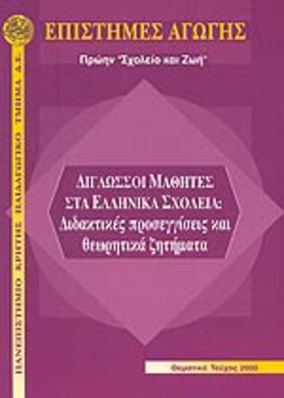Η επίδραση της παγκοσμιοποίησης στα ζητήματα της ανώτατης εκπαίδευσης του κράτους
Part of : Επιστήμες Αγωγής ; No.1, 2011, pages 7-20
Issue:
Pages:
7-20
Author:
Abstract:
The theories of A. Gramsci and M. Foucault indicate that the state is actively involved with constructing social discourses, functioning to achieve the purposes of social control. Such arguments tend to view the state as a passive tool, serving the interests of dominant groups. Although the theory of C. Offe is able to fit this gap, the influence of economic globalization hasn't been taken into account.The emergence of globalization can be traced to the oil crisis in the 1970s, the impact of which crossed national boundaries and fused many countries into an economic alliance. However, the achievement of greater capital profit has changed this trend, as witnessed by the phenomenon that capitalists and their agents, such as the IMF and the OECD, have been proactively promulgating the idea and value of globalization. This development substantially transforms globalization into a certain form of hegemony, leaving the states no choice but to subject themselves to its domination. On the other hand, Western cultures, under the guise of globalization, are able to invade imported countries and deteriorate the national identities of their citizens. It has been argued that in order to lessen this impact, the state will initiate localization, mainly through the channel of education. This article sets out to explore the interactive relationships between globalization and the state.
Subject:
Subject (LC):
Keywords:
παγκοσμιοποίηση, κράτος, καπιταλιστής, ανώτατη εκπαίδευση
Notes:
Περιέχει βιβλιογραφία




